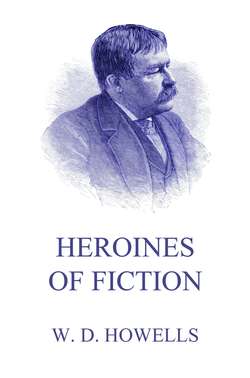Читать книгу Heroines Of Fiction - William Dean Howells - Страница 6
На сайте Литреса книга снята с продажи.
II
ОглавлениеIt remained for a still later, but not much later, novelist to portray in the sister-heroines of "The Vicar of Wakefield," two dear girls who are far more appreciable and acceptable to our nineteenth-century notions. They are as distinctly of the eighteenth-century circumstance as Clarissa Harlowe, but they are somehow so transcendently imagined that they have survived into our time with the effect of being born in it.
It can hardly be claimed that Goldsmith was a greater imagination than Richardson; but he was certainly a greater artist. He had the instinct of reticence, which Richardson had not, and it is not going much too far to say that the nineteenth-century English novel, as we understand it now, with its admirable limitations, was invented by Oliver Goldsmith. The novel that respects the right of innocence to pleasure in a true picture of manners, and honors the claim of inexperience to be amused and edified without being abashed, was his creation. He did not know himself, perhaps, how wonderfully he was prophesying, in "The Vicar of Wakefield," the best modern fiction of England and America.
He does not portray the incidents or characters which Richardson studies with a pious abhorrence, or Fielding with a blackguardly sympathy. His realism stops short of the facts which may appall, or which may defile the fancy. It contents itself with the gentle domestic situation of the story and its change from happiness to misery through chances none the less probable because they are operated by the author so much more obviously than they would be now by an author of infinitely less inspiration. Such an artist would not now accumulate disaster upon Dr. Primrose's head so clearly with his own hand; disaster has become much more accustomed to the affliction of fictitious character and makes its approaches with the indirectness and delays noticeable in the actual world. Neither would such an artist have employed means so little psychological as the good man's sudden loss of fortune and his swift precipitation to misery by the wretch who breaks the heart of his daughter, and spoils the joy of all those harmless lives. Happily for the finer art of our time, the betrayer does not now imaginably find his way into the family of a country clergyman with the intent to dishonor and destroy it; but even in the brutal time when such things were justly imaginable the author spares us the worst with a sort of prophetic sensibility. The fair Olivia is, indeed, eloped with if not quite abducted; things could not be otherwise managed in that day without defiance of the traditions alike of fiction and of fact; but she stoops to folly only through a mock marriage, and this in the end, as is well known, proves a real marriage, thanks to the twofold duplicity of the wicked lover's agent, who, for purposes of his own, has had the ceremony performed by a real clergyman. Her tragic fate gives her a sort of dignity not innate in her; and in her potential relenting towards the ultimate disaster of the scoundrel who has so cruelly misused her, she has the highest charm of the Ever-Womanly—at least to the Ever-Manly witness. But it is at no time pretended that she is a wise person, even by the fond father who tells the story of his family. "Olivia, now about eighteen," he says in such antithetical portraiture of his daughters as the age delighted in, " had that luxuriancy of beauty with which painters generally draw Hebe; open, sprightly and commanding. Sophia's features were not so striking at first, but often did more execution; for they were soft, modest and alluring. Olivia wished for many lovers; Sophia to secure one. Olivia was often affected from too great desire to please; Sophia even repressed excellence from her fear to offend. . . . I have often seen them exchange characters for a whole day together. A suit of mourning has transformed my coquette into a prude, and a new set of ribbands has given her younger sister more than natural vivacity."
